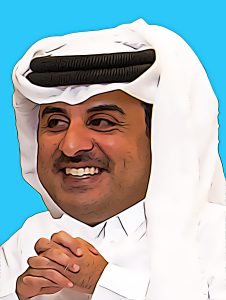1 Dec 2022 | Belarus, Campaigns, China, Equatorial Guinea, Iran, Mexico, News, Nicaragua, North Korea, Qatar, Russia, Saudi Arabia
At the end of every year, Index on Censorship launches a campaign to focus attention on human rights defenders, dissidents, artists and journalists who have been in the news headlines because their freedom of expression has been suppressed during the past twelve months. As well as this we focus on the authoritarian leaders who have been silencing their opponents.
Last year, we asked for your help in identifying 2021’s Tyrant of the Year and you responded in your thousands. The 2021 winner, way ahead of a crowded field, was Turkish president Recep Tayyip Erdogan, followed by China’s Xi Jinping and Syria’s Bashar al-Assad .
The polls are now open for the title of 2022 Tyrant of the Year and we are focusing on 12 leaders from around the globe who have done more during the past 12 months than other despots to win this dubious accolade.
Click on those in our rogues’ gallery below to find out why the Index on Censorship team believe each one should be named Tyrant of the Year and then click on the form at the bottom of those pages to cast your vote. The closing date is Monday 9 January 2023.
VOTING HAS NOW CLOSED. SEE WHO YOU VOTED AS TYRANT OF THE YEAR 2022 HERE.
1 Dec 2022 | Qatar, Tyrant of the Year 2022
 The atrocious worker conditions and contempt for basic human rights in Qatar have certainly been on our minds over the last year. However, relatively little attention has been paid to the man pulling the strings.
The atrocious worker conditions and contempt for basic human rights in Qatar have certainly been on our minds over the last year. However, relatively little attention has been paid to the man pulling the strings.
“Al Thani holds a relatively lower profile than his counterparts in Saudi Arabia and the UAE, but his dedication to censorship is no less concerning. From concealing thousands of workers’ deaths due to poor working conditions to arresting both local and international journalists, Al Thani remains committed to curtailing freedom of expression at every level,” says Emma Sandvik Ling, partnerships and fundraising manager at Index on Censorship.
Tamim bin Hamad Al Thani became emir in Qatar in 2013. Since then, he has demonstrated a commitment to censoring dissident voices. Qatar boasts widespread censorship in the press, academia, and civil society. Blatant cases of censorship are certainly not hard to come by: In 2021, blogger Malcolm Bidali was arrested and spent 28 days in solitary confinement for writing critically about the Qatari royal family. Indigenous groups are excluded from participating in Shura Council elections. In November, two Norwegian journalists were arrested hours before a scheduled interview with Abdullah Ibhais, the former communications director for Qatar’s 2022 World Cup.
Like his regional counterparts, Al Thani has invested in soft power strategies to appease international critics. Index editor-in-chief Jemimah Steinfeld reflected on the 2022 World Cup in Qatar in the autumn edition of the Index on Censorship magazine: “Here’s a nation that prohibits homosexuality, has no free press, forbids protest, restricts free speech. It has stadiums built using migrant labour with little to no workers’ rights. And yet come November these stadiums will open to the world, international dignitaries will be wined and dined and Qatar will revel in the glory associated with hosting a World Cup.”
Global attention will likely move on to new issues and challenges after the World Cup final on 18 December. Still, Al-Thani’s oppressive regime will remain.

